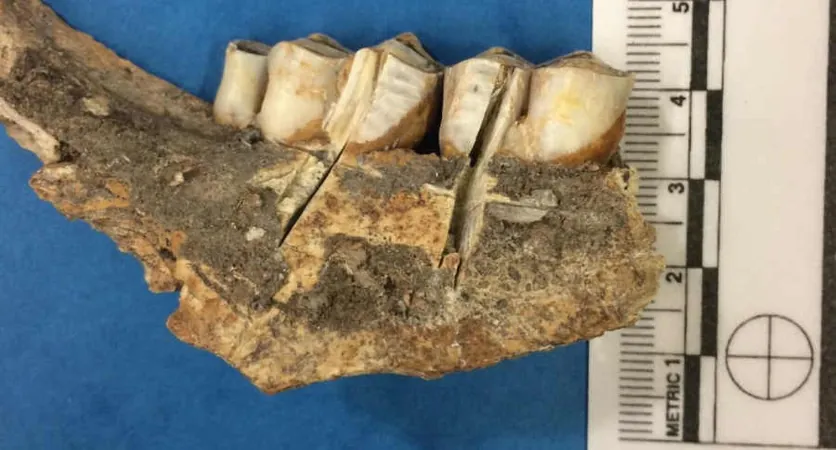
Ancient Hunters Mastered Strategic Reindeer Hunting Techniques
2024-09-21
Introduction
Recent archaeological discoveries reveal that prehistoric hunter-gatherers devised an organized and strategic approach to hunting reindeer, utilizing a well-planned seasonal subsistence strategy.
The Late Gravettian Hunters
Research conducted by a team from the University of Exeter and their European partners highlights the remarkable hunting practices of the Late Gravettian people, who lived more than 27,000 years ago in what is now the Czech Republic.
Hunting Strategies
These ancient hunters trekked long distances to the reindeer-rich foothills of Bohemia, showcasing their knowledge and planning capabilities. They were not merely following migrating herds; instead, they targeted relatively stationary reindeer populations during the early autumn—an ideal time for hunting due to the seasonal availability of these animals.
Significance of Reindeer
Dr. Alex Pryor, the lead author of the study published in Archaeological and Anthropological Sciences, emphasized the significance of reindeer as a primary food source. The hunters not only harvested meat but also gained vital resources, such as fat for cooking and hides for clothing.
The Lubná VI Site
The research primarily focused on the Lubná VI kill-butchery site, located about 50 kilometers west of Prague, which has been an archaeological interest since the 1890s. Discovered in 2006, Lubná VI has yielded an array of artifacts and remains that provide vital clues into the lives of these ancient peoples.
Findings from Excavations
Excavations conducted in 2018 uncovered stone tools, animal bones, and evidence of hearths, indicating at least seven reindeer were processed at this site, along with remains from other species.
Isotopic Analysis
Using advanced isotopic analysis on reindeer teeth, researchers were able to glean insights into the animals' grazing patterns, revealing that, unlike modern reindeer herds, these animals did not engage in extensive migrations.
Conclusion
This groundbreaking research illustrates that these ancient peoples were not merely opportunistic hunters. Instead, they arrived with a profound understanding of animal behavior and an organized approach to hunting that allowed them to thrive in their environment.



 Brasil (PT)
Brasil (PT)
 Canada (EN)
Canada (EN)
 Chile (ES)
Chile (ES)
 España (ES)
España (ES)
 France (FR)
France (FR)
 Hong Kong (EN)
Hong Kong (EN)
 Italia (IT)
Italia (IT)
 日本 (JA)
日本 (JA)
 Magyarország (HU)
Magyarország (HU)
 Norge (NO)
Norge (NO)
 Polska (PL)
Polska (PL)
 Schweiz (DE)
Schweiz (DE)
 Singapore (EN)
Singapore (EN)
 Sverige (SV)
Sverige (SV)
 Suomi (FI)
Suomi (FI)
 Türkiye (TR)
Türkiye (TR)